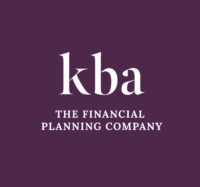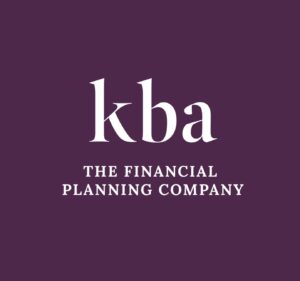May 2023 marks 70 years since the first ascent of Mount Everest, the highest mountain in the world.
There are few events that have encouraged and inspired others to pursue their own dreams in quite the same way as climbing Everest. Successfully climbing Everest requires resilience, patience, and teamwork to achieve the dream of reaching the peak, as does saving and investing for your future.
As challenging as it is to successfully reach the peak of Mount Everest, coming back down the mountain is far more treacherous and deadly.
In fact, according to a report in Scientific American, 56% of climbers died on their descent from Everest’s 8,850m summit. This compares with only 15% who died on their way up or before leaving their final camp.
While many don’t realise it, reaching retirement is a lot like reaching a mountain summit – and the decumulation phase of your financial life can present dangers.
The importance of having a well-laid plan when you’re preparing to spend
After spending several decades in your career, contributing to a pension, and accumulating your wealth, once you’re no longer working you may think rest is easy by comparison.
In fact, as important as it is to work with an expert financial planner and have a well-defined financial plan while accruing your wealth, when the time comes to start spending your life’s savings in retirement, financial advice is even more vital.
Spending your wealth in retirement is called “decumulation”
The accumulation phase of your financial life is all about saving and investing efficiently. Decumulation, though, requires a careful and considered approach to ensure that your wealth lasts as long as you need it to.
This means that your financial plan must focus on delivering a stable and sustainable income throughout your retirement.
These five steps could help you to ensure a safe descent in retirement.
1. Plan to ensure your savings last a lifetime
To secure a sustainable income, you first need to understand how much money you need to live on. Remember: each life stage will require a different amount of money.
In the early years of retirement, you’re likely to be fit and active and may find you spend more money. Now that you’re no longer working, you may spend more on travel, hobbies, eating out with friends, or doing home improvements.
Following several years of activity, at some point, you’ll probably start to slow down. While you’ll hopefully remain busy with hobbies, you may be less inclined to travel long distances or stay away from home for long stretches of time.
Then, as you enter later life, your mobility may be more limited, and you may require care, which can be costly.
A financial planner can help you work out the changing pattern of expenditure in line with your life expectancy. They’ll be able to help you formulate a plan that gives you peace of mind that your money will last as long as your retirement.
2. Structure a sustainable and tax-efficient stream
While tax-efficient accumulation helps enhance your wealth for the retirement lifestyle you desire, tax-efficient decumulation helps preserve your capital and increases the chance of having money to leave to your loved ones.
The most efficient retirement income strategy should be planned well in advance and take full advantage of all relevant tax allowances and exemptions.
If you are married or in a civil partnership, make sure you plan together. Doing so will allow you to allocate your income and assets to maximise tax efficiency.
So, make sure you maximise all your tax allowances including:
- Income Tax allowances
- The Dividend Allowance
- Personal savings allowance.
3. Plot how to spend your savings, starting with any excess cash
When looking at your combined wealth, it’s important to consider the order in which you should decumulate your savings.
Ideally, you should use cash first, followed by taxable investments, ISAs, and finally pensions.
It’s good planning to always hold an emergency fund in an easy access savings account. Typically, it’s wise to have enough cash to cover around three- to six-months of expenditure.
Should you have more cash available, consider using this ahead of withdrawing funds from your pensions or investments.
When markets are volatile, selling investments at the wrong time could leave you with less to spend than you had hoped. Using excess cash allows you to leave funds invested, which may provide enough time for funds to recover any lost value.
4. Pause for thought before drawing on your pension
Research from HSBC has revealed that pension savers are losing around £1.7 billion a year during their transition into retirement. The report drew particular attention to workplace pension scheme members, many of whom are losing significant sums because of the way they choose to access their money.
To avoid becoming a money-losing statistic, make sure you take advice before you start drawing from your pension.
Many people consider their pension to be the foundation of their retirement plan, but it may pay to delay drawing on your pension if you have other income that you can use instead.
This is because pension funds benefit from tax-free growth, interest, and dividends. As a result, leaving your pension invested can be especially helpful for maintaining capital value.
Plus, pension funds aren’t usually subject to Inheritance Tax (IHT). So, leaving your pension intact while you draw on other investments could also be an effective way to reduce your IHT liability.
5. Plan ahead to reduce your tax liability
With the significant reductions to Capital Gains Tax (CGT) and Dividend Tax, it’s more important than ever to create a strategy to reduce your tax bill.
To achieve this, you could:
- Phase your taxable investment accounts into ISAs
- Use your annual CGT exemption to avoid large gains rolling up
- Structure your investments depending on the type of income they generate.
Remember that planning as a couple can be hugely effective, too. Doing so means you can divide your investments to use both Personal Allowances and CGT exemptions more efficiently.
Helpfully, transfers between spouses don’t attract CGT and there is no minimum holding period.
Get in touch
Whether you’ve reached the peak and are ready to retire now or you’ve still some distance to climb, it’s never too soon to put a decumulation plan in place. If you’d like help to create a financial plan to structure a tax-efficient income in retirement, please get in touch.
Email contactme@kbafinancial.com or call us on 01942 889 883.
Please note
This blog is for general information only and does not constitute advice. The information is aimed at retail clients only.
The value of investments and any income from them can fall as well as rise and you may not get back the original amount invested.
Past performance is not a guide to future performance and should not be relied upon.
HM Revenue and Customs practice and the law relating to taxation are complex and subject to individual circumstances and changes which cannot be foreseen.
Approved by The Openwork Partnership on [16/05/2023].


